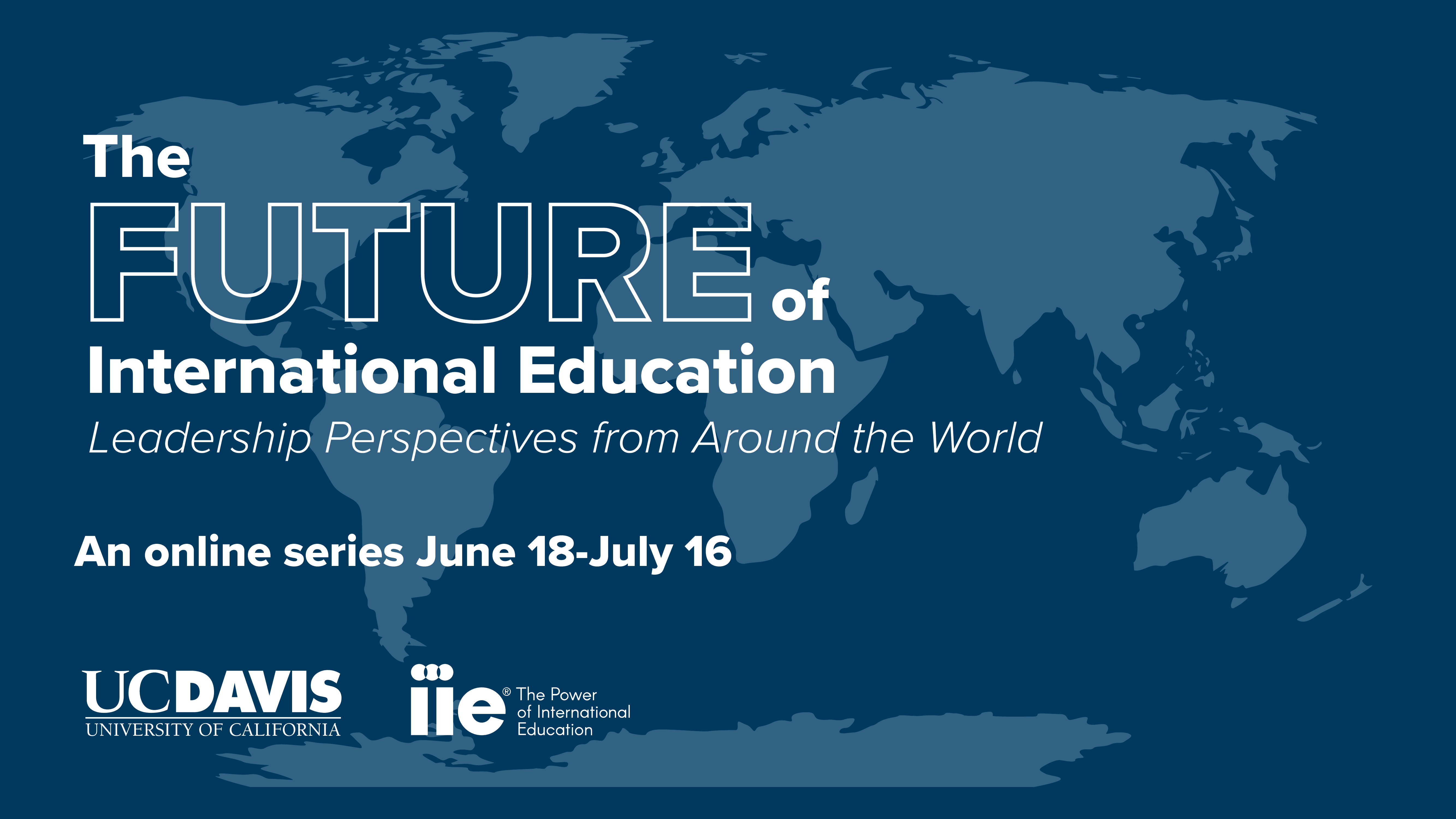
The Institute of International Education (IIE) and the University of California, Davis, presented The Future of International Education: Leadership Perspectives from Around the World, a five-part series of leadership conversations about the future of the university and of international education, including the role internationalization has in advancing university missions.
Online events brought together senior leaders in academia for critical global and regional discussions on the consequences of COVID-19 and what they mean for global engagement and the future of both international education and higher education, in 2020 and beyond. This series was hosted by the Institute of International Education (IIE) and UC Davis Global Affairs and the UC Davis Office of Diversity, Equity, and Inclusion.
More information on the online series of leadership panels, including panel recordings, is available below.
The Future of International Education: Leadership Perspectives from Around the World
The five-part series starts with a global panel followed by regional panels, focusing on the responsibility of higher education and international education in times of global crisis and post-crisis. Questions and discussions covered include, for example, how universities can continue to make progress on internationalization, the roles of global research and global learning, the ways in which universities can bridge the local and the global, and how universities should address inequalities that are exacerbated by COVID-19.
Leadership panels explore conditions, challenges, and approaches being taken or considered, how universities are working with governmental, non-governmental, business, and other partners to tackle immediate needs and longer-term challenges, and how global engagement and partnerships are making a difference.
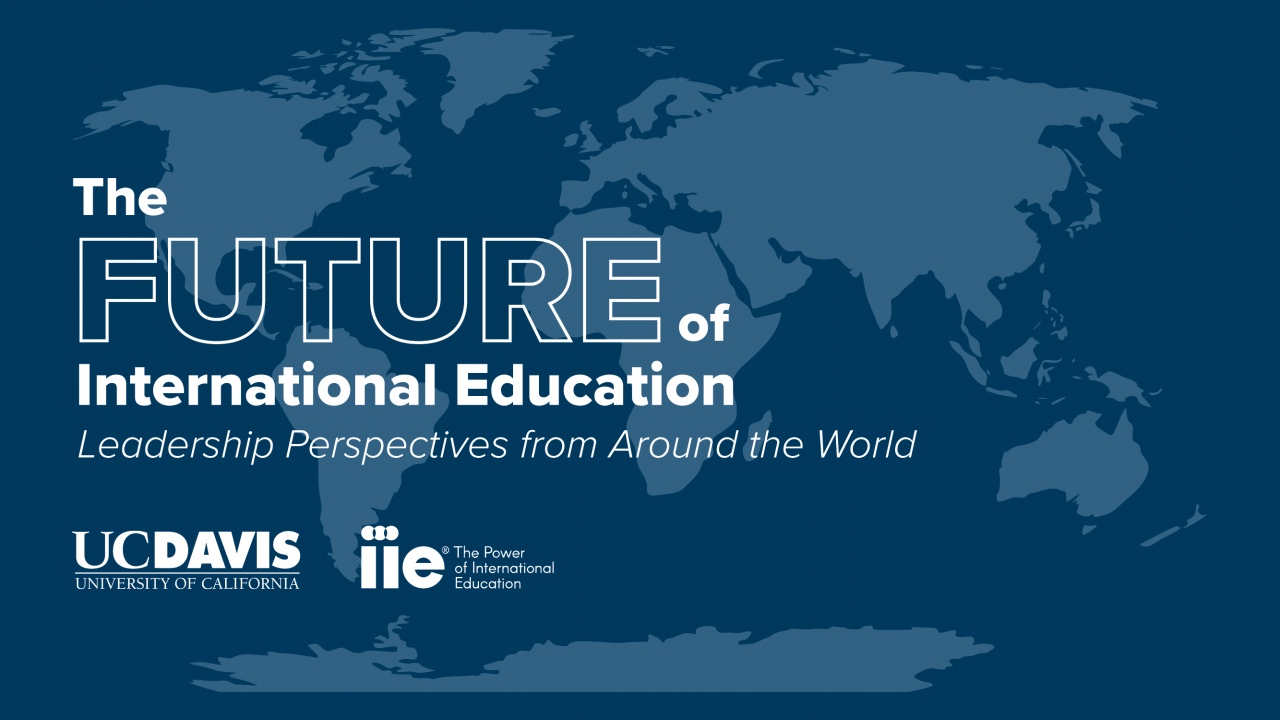
Future of International Education Briefing Paper
Based on the series and the leadership discussions, this briefing paper covers four key themes for the future of international education.
Navigate to panel information for:
- Leadership Perspectives with a Global Focus (June 18)
- Leadership Perspectives from Africa (June 25)
- Leadership Perspectives from Asia and Oceania (July 2/July 3)
- Leadership Perspectives from Europe (July 9)
- Leadership Perspectives from Latin America (July 16)
The Future of International Education: Leadership Perspectives with a Global Focus: June 18
Panel Recording
Panel Moderator
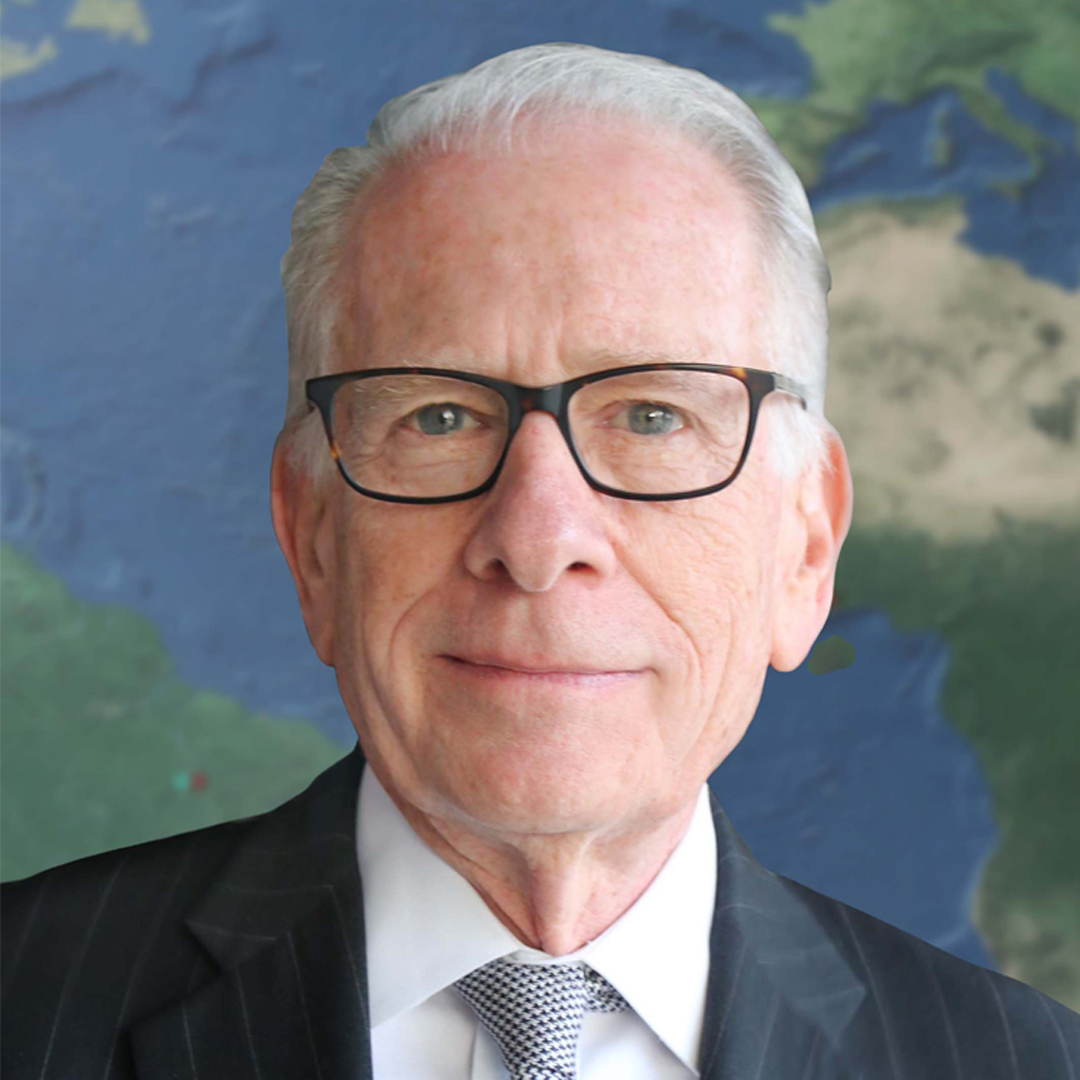
Allan E. Goodman is the sixth president of the Institute of International Education, which marked its Centennial in 2019. IIE promotes the exchange of scholars and students, rescues scholars, students, and artists from persecution, displacement, and crises, conducts research on international academic mobility, and administers the Fulbright program sponsored by the United States Department of State, as well as over 200 other corporate, government and privately-sponsored programs. U.S. Senate Resolution 146 passed unanimously in April 2019 commending IIE for its work in all these areas.
Goodman is a member of the Council on Foreign Relations, a founding member of the World Innovation Summit for Education (WISE), and serves on the selection committees for the Rhodes and Schwartzman Scholars and the WISE and Yidan Prizes. He also serves on the Council for Higher Education Accreditation International Quality Group Advisory Council and the Board of Trustees of the Education Above All Foundation. Goodman has a Ph.D. in Government from Harvard, an M.P.A. from the John F. Kennedy School of Government and a B.S. from Northwestern University, and is the recipient of honorary degrees from Canadian, European, Japanese, UK, and US universities. He received decorations for his work in promoting educational exchange and scholar rescue from the governments of France, Germany, and Norway; he received the first Gilbert Medal from Universitas 21.
Panelists
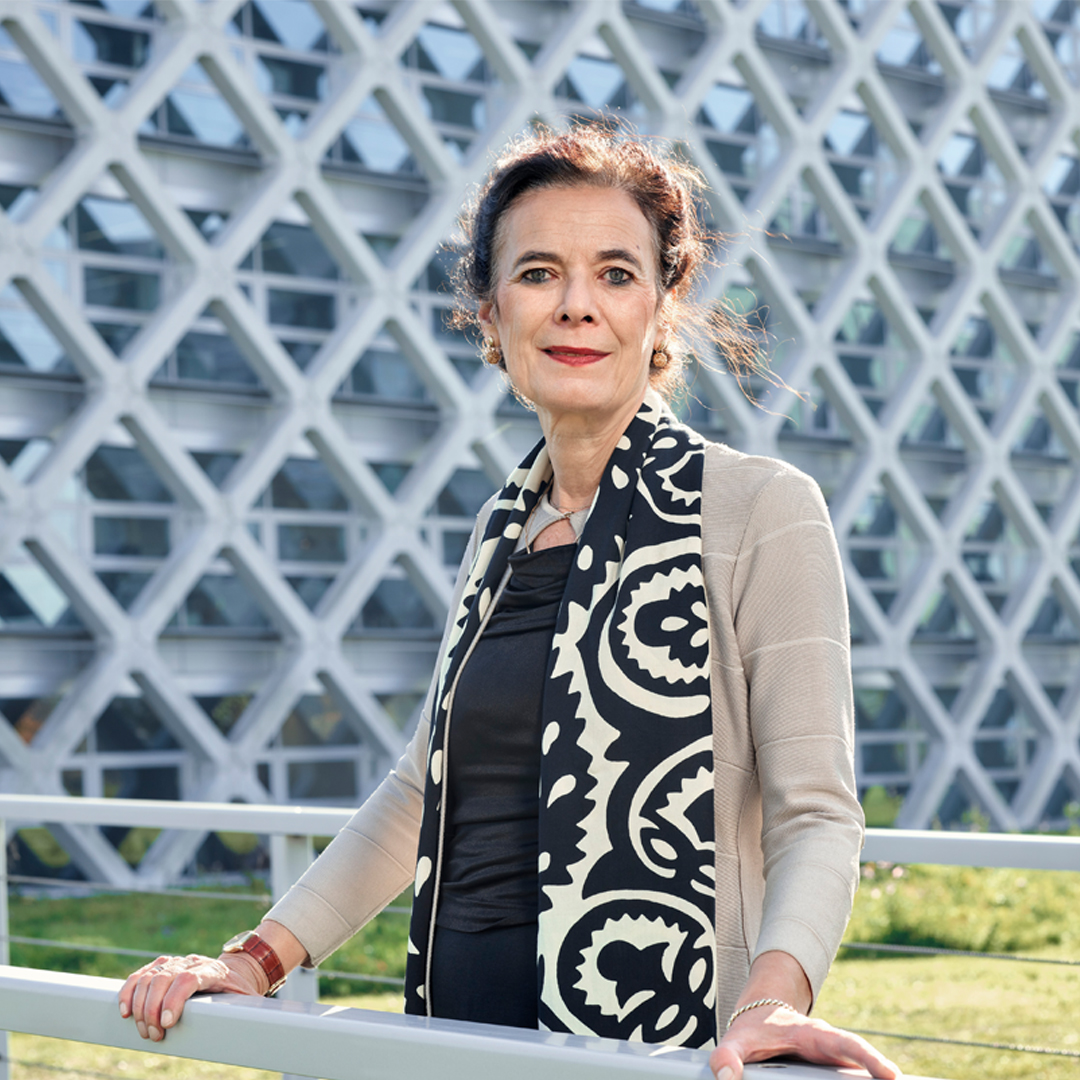
Louise O. Fresco is the president of the Executive Board of Wageningen University & Research in the Netherlands. She combines a long academic career as a professor at Wageningen and other institutions with an extensive involvement in policy and development, with many programs in Africa, Asia and Latin America and teaching in Sweden, Belgium and the U.S. Louise O. Fresco is a member of eight Scientific Academies and holds four honorary doctorates. Ten years of her career were spent at the Food and Agriculture Organisation of the UN.
She is a non-Executive Director on the board of Syngenta as well as of various philanthropies while previously she served on the supervisory boards of companies like Rabobank and Unilever and at the board of the Royal Concertgebouw Orchestra. Her successful book “Hamburgers in Paradise, the stories behind the food we eat” was translated in several languages. In total she published thirteen books of fiction and non-fiction, and she also writes a bi-weekly column in NRC, the leading evening paper of The Netherlands. She presented a six part documentary on food and development for Dutch public television. You may have seen her TED talk in Palm Springs in 2009.
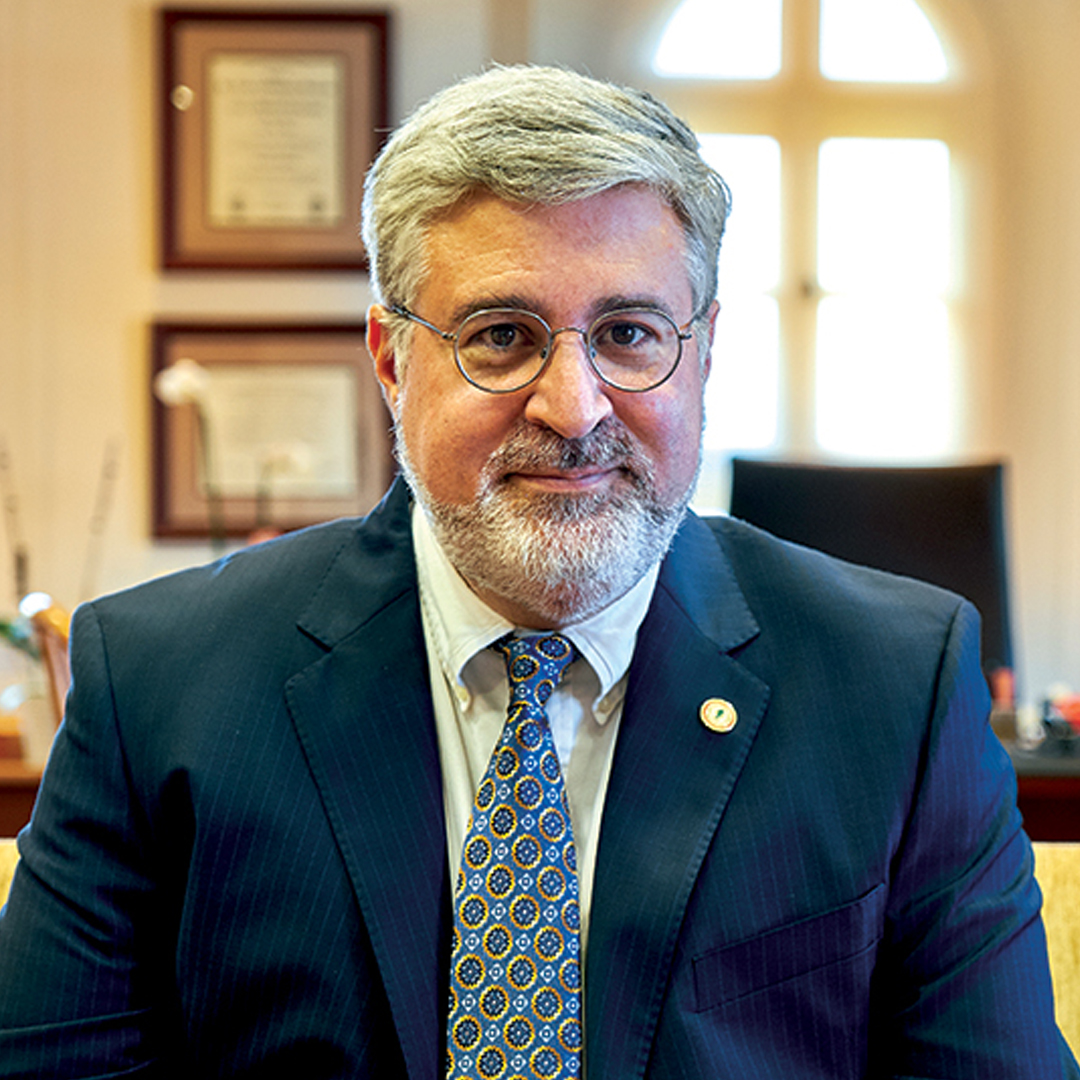
Fadlo R. Khuri is the 16th president of the American University of Beirut (AUB) and professor of medicine at the Faculty of Medicine and Medical Center. Khuri is an accomplished molecular and translational oncologist, having authored over 500 articles. He serves as Editor in Chief of the journal Cancer. Prior to AUB, he was professor and executive associate dean for research at Emory University School of Medicine and deputy director of the Winship Cancer Institute. Khuri was born in Boston and raised in Beirut. He earned his undergraduate degree at Yale University and MD at Columbia University College of Physicians and Surgeons.
Under Khuri’s leadership, AUB has reintroduced academic tenure and initiated several new PhD programs. He has helped obtain grants and donations for underprivileged students and patients totaling more than $250 million. In 2018, he spearheaded the effort to declare AUB a fully tobacco-free campus. Khuri is leading the $650 million BOLDLY AUB capital campaign, which brought in the largest single gift in the university’s history. He also developed a new campus master plan and strategic plan: VITAL 2030. Khuri is a fellow of the American College of Physicians and his work has been recognized with several major awards.
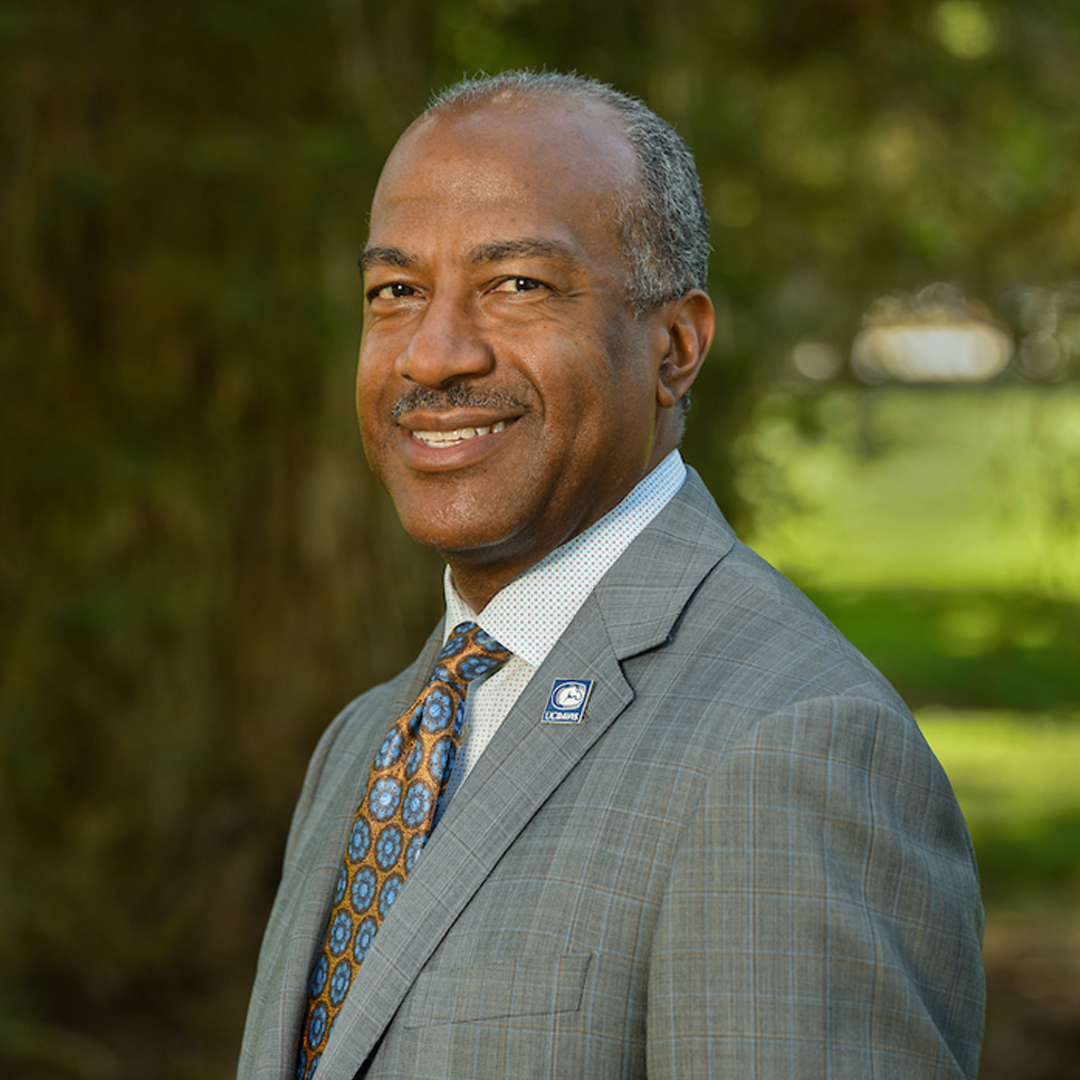
Gary S. May became UC Davis’ seventh chancellor on Aug. 1, 2017. He leads the most comprehensive campus in the University of California system, with four colleges and six professional schools. UC Davis enrolls more than 39,000 students, brings in nearly $850 million annually in sponsored research and contributes at least $8 billion annually to California’s economy. In 2019, UC Davis reached the Top 10 in four national rankings of universities, including fifth among public universities in the Wall Street Journal/Times Higher Education College Rankings.
May is known as a dynamic leader with a passion for helping others succeed. He believes success is best judged by how we enhance the lives of others. Throughout his career, May has championed diversity and mentorship in both higher education and the workplace. He developed nationally recognized programs to attract, mentor and retain underrepresented groups in the STEM fields of science, technology, engineering and math. In 2015, President Barack Obama honored May with the Presidential Award for Excellence in STEM Mentoring. May has won numerous honors for his research in computer-aided manufacturing of integrated circuits. He authored more than 200 technical publications, contributed to 15 books and holds a patent related to this work. In 2010, May was named “outstanding engineering alumnus” of UC Berkeley, where he earned his master’s and Ph.D. degrees in electrical engineering and computer science.
The Future of International Education: Leadership Perspectives from Africa: June 25
Panel Recording
Panel Moderator

Gary S. May became UC Davis’ seventh chancellor on Aug. 1, 2017. He leads the most comprehensive campus in the University of California system, with four colleges and six professional schools. UC Davis enrolls more than 39,000 students, brings in nearly $850 million annually in sponsored research and contributes at least $8 billion annually to California’s economy. In 2019, UC Davis reached the Top 10 in four national rankings of universities, including fifth among public universities in the Wall Street Journal/Times Higher Education College Rankings.
May is known as a dynamic leader with a passion for helping others succeed. He believes success is best judged by how we enhance the lives of others. Throughout his career, May has championed diversity and mentorship in both higher education and the workplace. He developed nationally recognized programs to attract, mentor and retain underrepresented groups in the STEM fields of science, technology, engineering and math. In 2015, President Barack Obama honored May with the Presidential Award for Excellence in STEM Mentoring. May has won numerous honors for his research in computer-aided manufacturing of integrated circuits. He authored more than 200 technical publications, contributed to 15 books and holds a patent related to this work. In 2010, May was named “outstanding engineering alumnus” of UC Berkeley, where he earned his master’s and Ph.D. degrees in electrical engineering and computer science.
Panelists
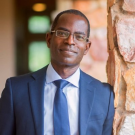
Patrick Awuah is the founder and president of Ashesi University, a private, not-for-profit institution that has quickly gained a reputation for innovation and quality education in Ghana. Before founding Ashesi University, Awuah worked as a Program Manager for Microsoft where, among other things, he spearheaded the development of dial-up internet working technologies and gained a reputation for bringing difficult projects to completion.
He holds bachelor degrees in Engineering and Economics from Swarthmore College, and an MBA from UC Berkeley’s Haas School of Business. In 2004, Swarthmore awarded Awuah an honorary doctorate in recognition of his leadership in African higher education. He also holds an honorary Doctor of Laws awarded by Babson College. Awuah was nominated as a Global Leader 2007 by the World Economic Forum; and in recognition of his service to Ghana, was awarded Membership of the Order of the Volta by His Excellency, President J.A. Kufuor in July 2007. The Order of the Volta is one of Ghana’s highest awards, given to individuals who exemplify the ideal of service to the country. He is a Fellow of the Africa Leadership Initiative (a branch of the Aspen Global Leadership Network), a member of the United States Council on Foreign Relations, the Pacific Council on International Policy, and the United States Tau Beta Pi honor society for excellence in engineering.
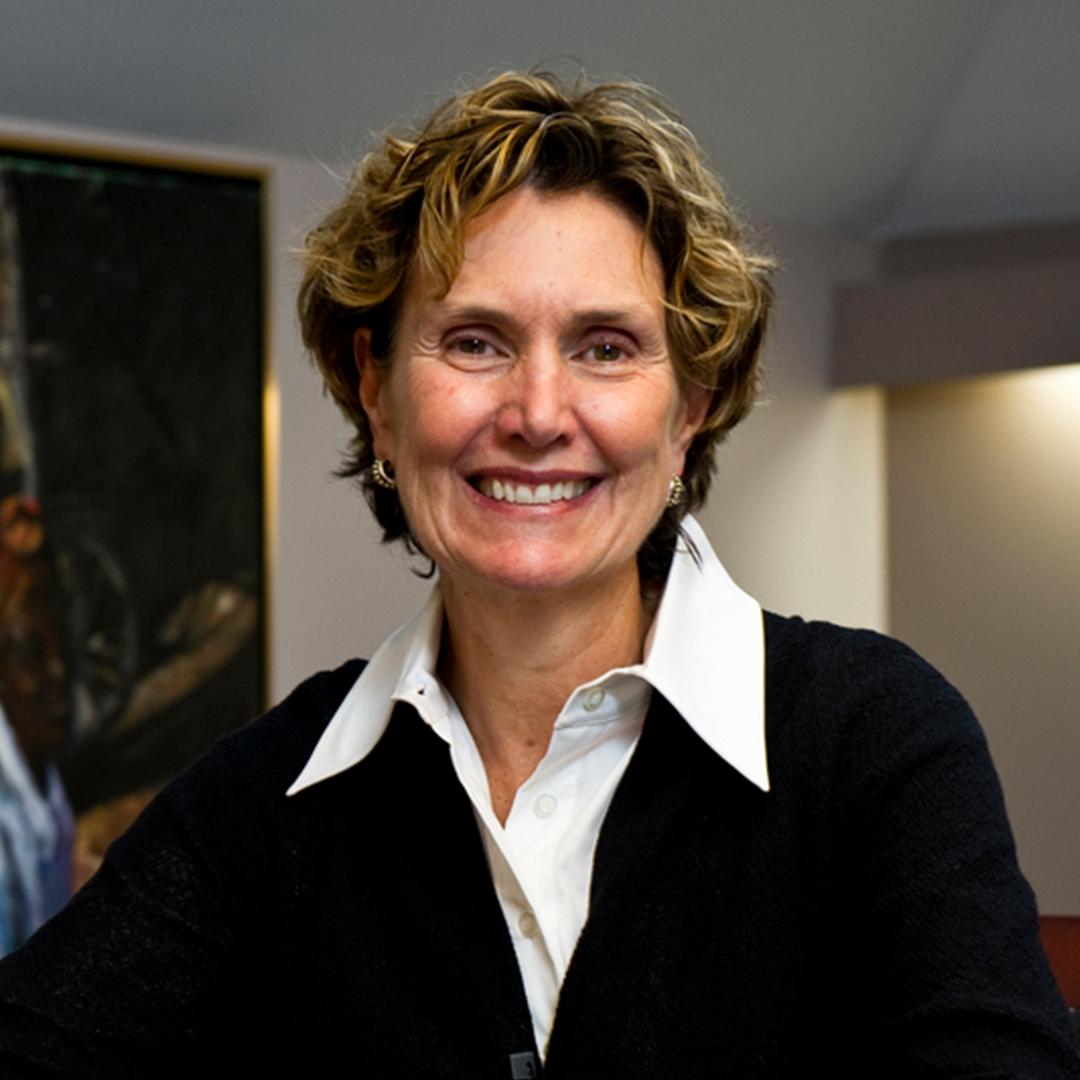
Patricia L. Campbell is currently chancellor of the University of Rwanda and serves on the board of several nonprofit health and social service organizations in Boston and Africa. She retired in 2019 as the chief administrative officer of Tufts University. Campbell was appointed executive vice president in September 2007, after serving as vice president for finance and administration at WGBH, Boston’s public television station, for three years.
From 1996 to 2004, Campbell was executive associate dean of Tufts University School of Dental Medicine, where she introduced a new information technology system, established new financial controls, initiated a strategic planning process, and reorganized the school’s dental clinic operations. Prior to 1996, she was deputy commissioner for administration and finance for the Office of Mental Health in New York, where she oversaw budget and administration of 33 hospitals and local assistance for mental health services, deputy director of Capital District Psychiatric Center and budget analyst for the New York State Assembly Ways & means Committee. Campbell earned her undergraduate degree and a master’s in library science from the State University of New York at Albany and a master’s in public health from Tufts University.
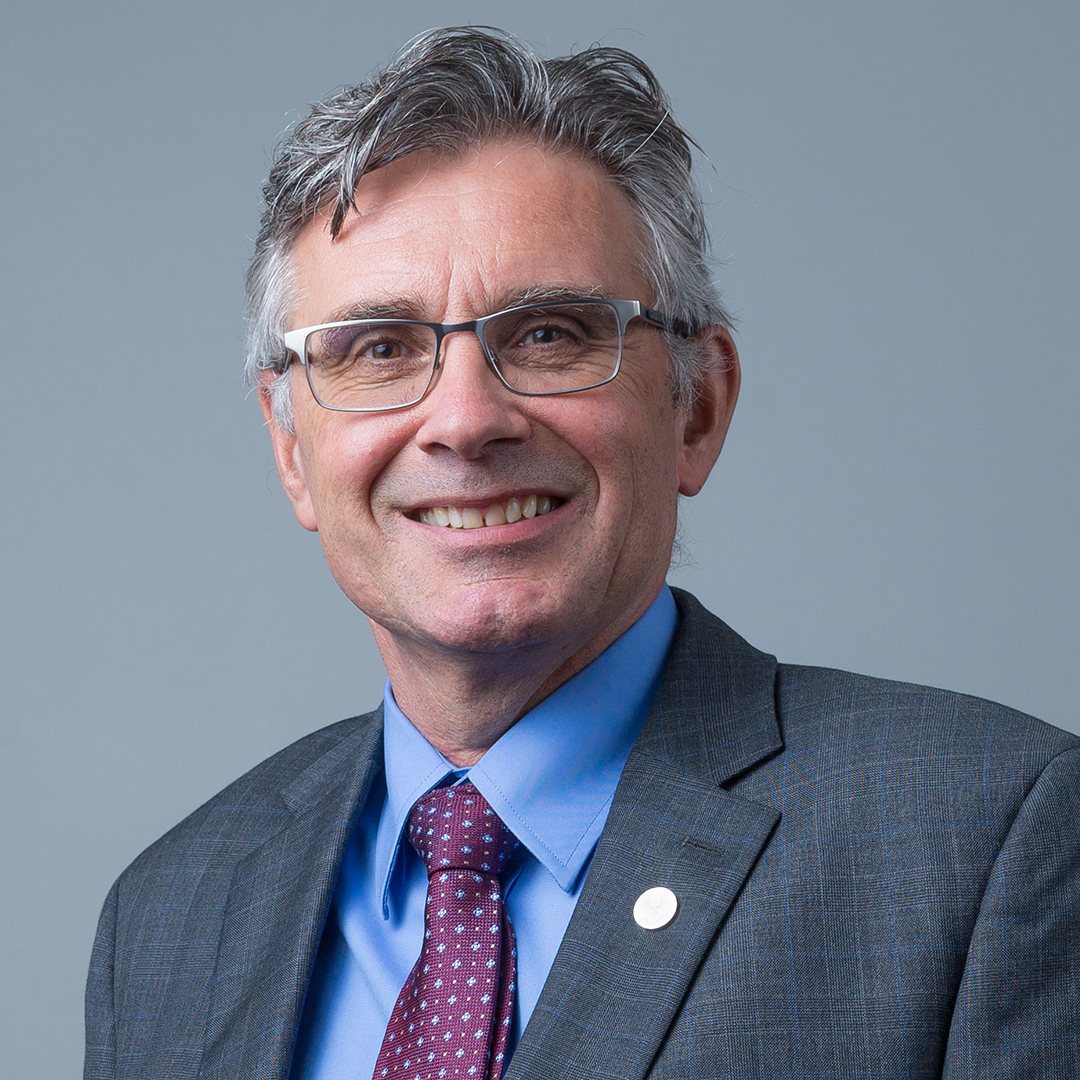
Wim de Villiers is rector and vice-chancellor of Stellenbosch University (SU), vice-chairperson of Universities South Africa, chairperson of the Higher Education HIV/AIDS Programme Board and a council member of the Association of Commonwealth Universities. He was appointed to his SU position in December 2014, and took office in April 2015, becoming the 12th person to lead Maties since it achieved formal university status out of Victoria College in 1918. He was previously dean of Health Sciences at the University of Cape Town, and is a Matie alumnus and medical doctor who also studied and worked in England and the USA for 21 years.
He matriculated from Paul Roos Gymnasium in 1977 with top marks in the then Cape Province, and passed his MB,ChB at SU cum laude, receiving the Francie Van Zijl and Chancellor’s medals for academic achievement. De Villiers obtained a DPhil in Immunology at Oxford University, England, in 1995. He then went to America to gain more experience – at the University of Kentucky Medical Centre in Lexington. He later also obtained a master’s degree in health-care management from Harvard University. De Villiers practiced as a gastroenterologist and established himself as a respected researcher in the field. He has held a number of senior positions at the University of Kentucky, including Head of Gastroenterology, and Administrative Head of the Good Samaritan Hospital.
The Future of International Education: Leadership Perspectives from Asia and Oceania: July 2
Panel Recording
Panel Moderator

Allan E. Goodman is the sixth president of the Institute of International Education, which marked its Centennial in 2019. IIE promotes the exchange of scholars and students, rescues scholars, students, and artists from persecution, displacement, and crises, conducts research on international academic mobility, and administers the Fulbright program sponsored by the United States Department of State, as well as over 200 other corporate, government and privately-sponsored programs. U.S. Senate Resolution 146 passed unanimously in April 2019 commending IIE for its work in all these areas.
Goodman is a member of the Council on Foreign Relations, a founding member of the World Innovation Summit for Education (WISE), and serves on the selection committees for the Rhodes and Schwartzman Scholars and the WISE and Yidan Prizes. He also serves on the Council for Higher Education Accreditation International Quality Group Advisory Council and the Board of Trustees of the Education Above All Foundation. Goodman has a Ph.D. in Government from Harvard, an M.P.A. from the John F. Kennedy School of Government and a B.S. from Northwestern University, and is the recipient of honorary degrees from Canadian, European, Japanese, UK, and US universities. He received decorations for his work in promoting educational exchange and scholar rescue from the governments of France, Germany, and Norway; he received the first Gilbert Medal from Universitas 21.
Panelists
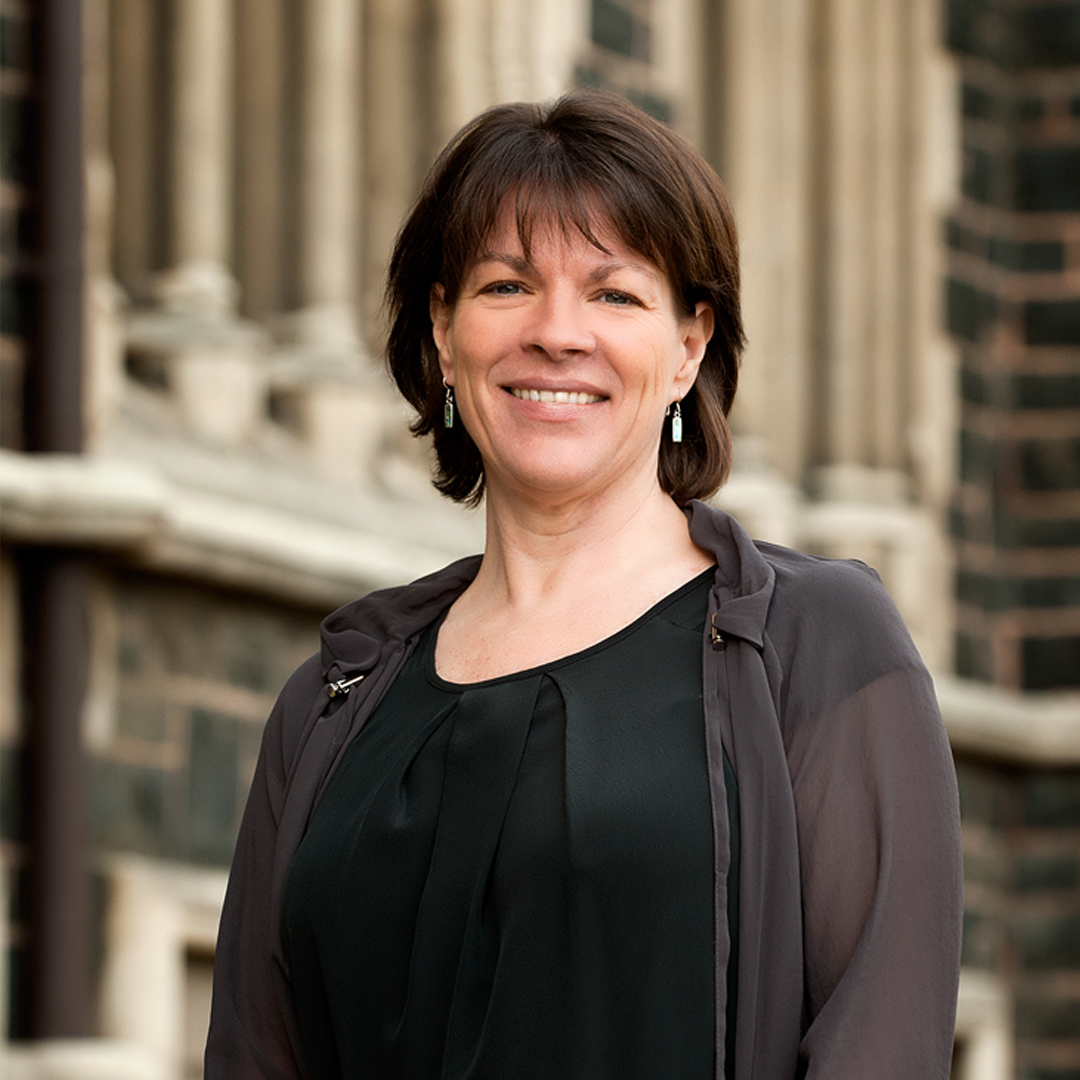
Harlene Hayne is the vice-chancellor of the University of Otago in New Zealand. Hayne received a BA from Colorado College, and an MSc and PhD in Behavioral Neuroscience from Rutgers University. She was a postdoctoral fellow at Princeton University prior to coming to the University of Otago. In 2011, she was appointed to the position of vice-chancellor, having previously been the deputy vice-chancellor (Research & Enterprise) and head of the Psychology Department.
Hayne continues to maintain an active research programme. She has had continuous extramural funding for her research. To date she has published over 150 book chapters and journal articles and has supervised 28 PhD, 40 masters and more than 50 undergraduate honors theses. She is the associate editor of Psychological Science in the Public Interest, Memory, the Journal of Experimental Child Psychology, and the New Zealand Journal of Psychology and is a member of the Editorial Board of Infant Behaviour and Development and of Developmental Psychobiology. Hayne is a fellow of the Royal Society of New Zealand and of the Association for Psychological Science. In 2009 she was awarded the New Zealand Order of Merit for services to scientific and medical research and in 2012 she was awarded an Honorary Doctor of Science degree from Colorado College, USA. She is a former member of the Board of Treasury and is the current chair of Fulbright New Zealand and of the Universities New Zealand Research Committee.
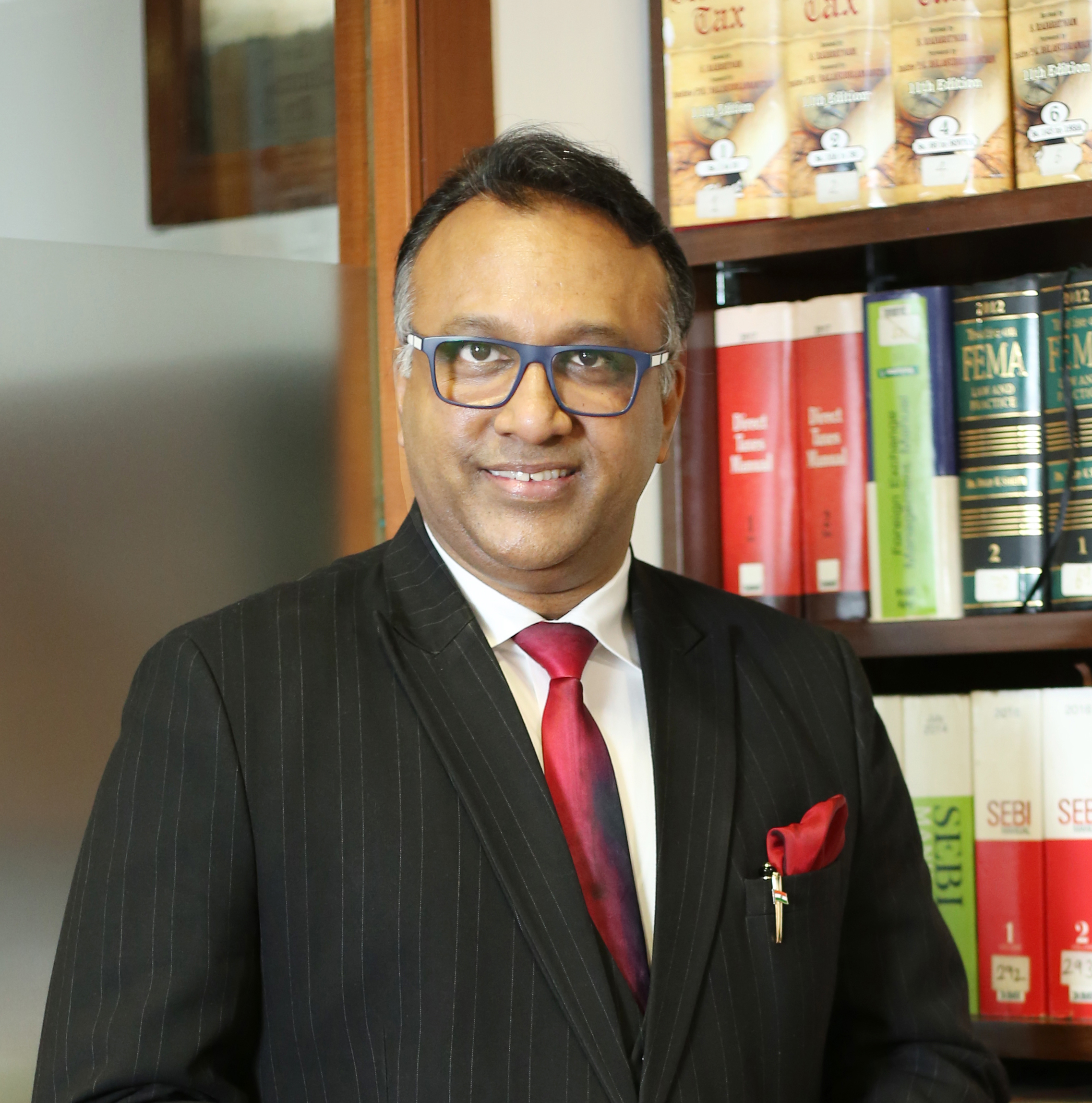
C. Raj Kumar is the founding vice chancellor of O.P. Jindal Global University (JGU) in India. He was appointed as the vice chancellor in 2009 when the university was established. Kumar conceived the idea of establishing India's first 'Global University' and with the visionary leadership and philanthropic support of Mr. Naveen Jindal, established JGU in Sonipat, Haryana in 2009. JGU is one of only 20 universities in India and the only non-STEM and non-medicine university, which has been declared as an “Institution of Eminence” by the Government of India. Kumar is a Rhodes Scholar, an accomplished legal scholar and works in the fields of human rights and development, comparative constitutional law, terrorism and national security, corruption and governance, law and disaster management, legal education and higher education. He has over 200 publications to his credit. Professor Kumar has academic qualifications from the University of Oxford, Harvard University, University of Hong Kong, University of Delhi and Loyola College.
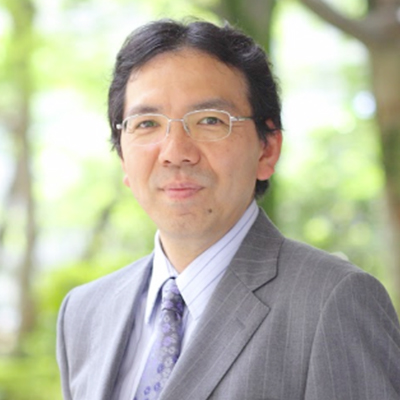
Yutaka Maeda is the vice president and dean of the Division of International Affairs at Kansai University in Japan.
He received Doctor of Engineer degrees in electronic engineering from Osaka Prefecture University in 1990. He is a Professor at the Faculty of Engineering. His current duties including dean for Division of International Affairs, and vice president for Kansai University. Recently he has taken the role as director for the newly established Institute for Innovative Global Education (IIGE) under the Inter-University Exchange Project funded by MEXT, 2018-2022 ("COIL Plus Program to Develop Global Career Mindset"). His recent research interests are in the areas of artificial neural networks, the control theory related to the stochastic approximation and signal processing.
The Future of International Education: Leadership Perspectives from Europe: July 9
Panel Recording
Panel Moderator

Allan E. Goodman is the sixth president of the Institute of International Education, which marked its Centennial in 2019. IIE promotes the exchange of scholars and students, rescues scholars, students, and artists from persecution, displacement, and crises, conducts research on international academic mobility, and administers the Fulbright program sponsored by the United States Department of State, as well as over 200 other corporate, government and privately-sponsored programs. U.S. Senate Resolution 146 passed unanimously in April 2019 commending IIE for its work in all these areas.
Goodman is a member of the Council on Foreign Relations, a founding member of the World Innovation Summit for Education (WISE), and serves on the selection committees for the Rhodes and Schwartzman Scholars and the WISE and Yidan Prizes. He also serves on the Council for Higher Education Accreditation International Quality Group Advisory Council and the Board of Trustees of the Education Above All Foundation. Goodman has a Ph.D. in Government from Harvard, an M.P.A. from the John F. Kennedy School of Government and a B.S. from Northwestern University, and is the recipient of honorary degrees from Canadian, European, Japanese, UK, and US universities. He received decorations for his work in promoting educational exchange and scholar rescue from the governments of France, Germany, and Norway; he received the first Gilbert Medal from Universitas 21.
Panelists
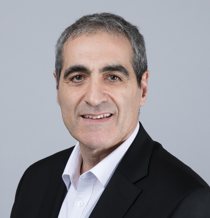
Serge Fdida has been vice-president of international development at Sorbonne Université since 2018 where he has also been a professor since 1995. Fdida has developed a long experience of research management. From 2000 to 2005, he was appointed scientific adviser with CNRS-STIC. He has been vice-president in charge of international affairs at University Pierre and Marie Curie from 2011 to 2012, vice-president in charge of European affairs from 2012 to 2015, and vice-president of Europe and international affairs from 2016 to 2017. He is coordinating the 4EU+ European University Alliance project. Fdida has developed a strong experience related to innovation and industry transfer; he was the Director of EURONETLAB, a joint laboratory established in 2001, together with Thales; the co-founder of the Qosmos company; one of the active contributors to the creation of the Cap Digital cluster in Paris; the vice-president of RNRT (French National research Network in Telecommunications) and is currently president of the French community of the KIC EIT Health.
His research interests are related to the future internet as well as the design of federated testbeds to support experimentally driven research. He has been leading many research projects in High Performance Networking in France and Europe, notably pioneering the European activity on Internet test platforms. He is currently leading the Equipex FIT, a large-scale testbed on the Future Internet of Things and coordinating several EU H2020 projects. Fdida has published numerous scientific papers, in addition to a few patents and one RFC. He is a distinguished ACM member and an IEEE Senior member.
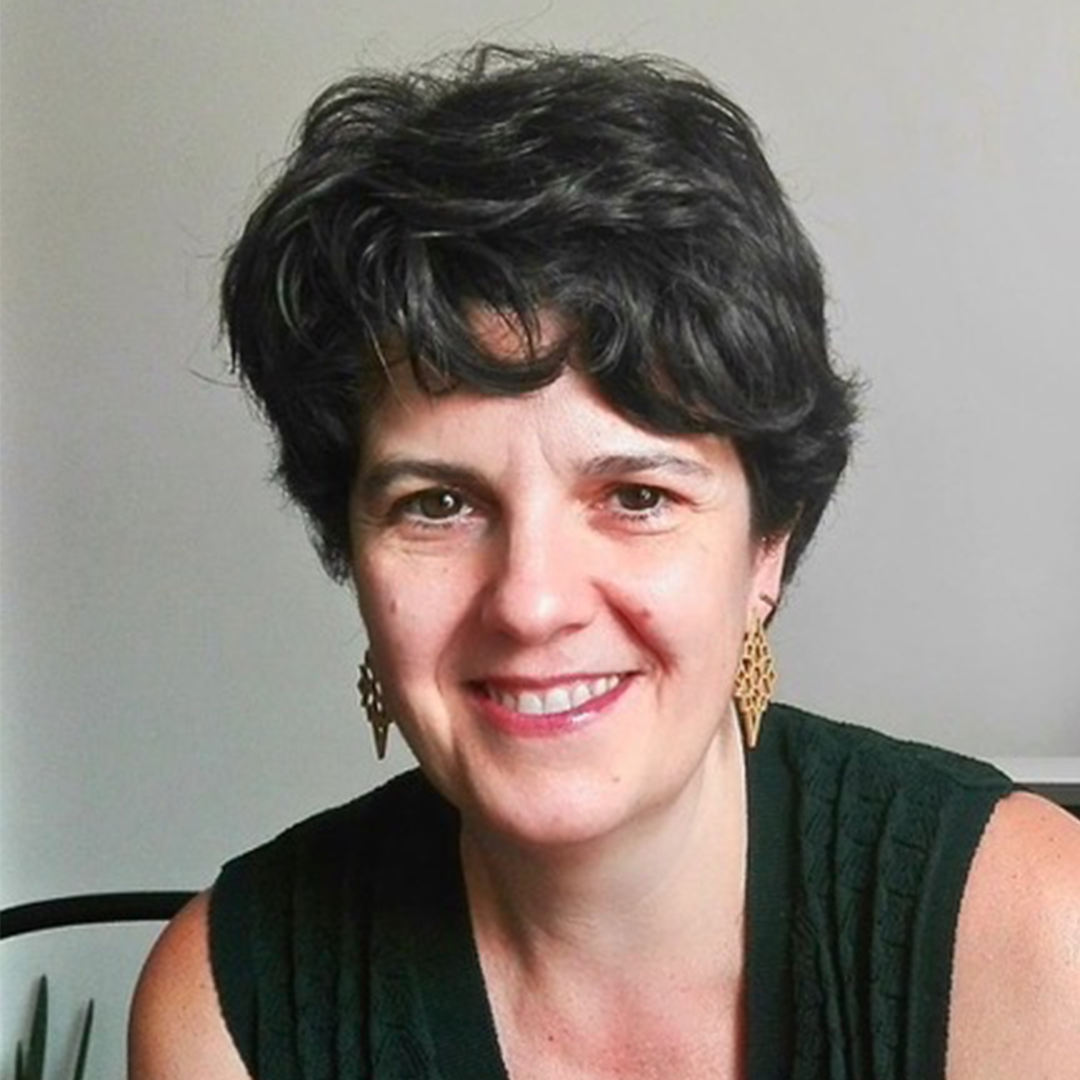
Matilde Sánchez Fernández is the vice rector of Universidad Carlos III de Madrid in Spain. She received the M.Sc. degree in telecommunications engineering and the Ph.D. degree from Universidad Politécnica de Madrid, Spain, in 1996 and 2001, respectively. In 2000, she joined the Universidad Carlos III de Madrid, where she has been an Associate Professor since 2009. Previously, she was a Telecommunication Engineer with Telefónica.
Since 2014 she works in the internationalization area in Universidad Carlos III de Madrid, first as deputy vice-rector for International Relations and later on as vice-rector for International Relations and Cooperation and vice-rector for Internationalization and European University. She has performed several stays at the University of Kansas, Bell Laboratories, Centre Tecnològic de Telecomunicacions de Catalunya and Princeton University. In Universidad Carlos III de Madrid, she teaches several undergraduate and graduate courses (M.Sc. and Ph.D.) related to communication theory, digital communications and wireless communications.

Sari Lindblom serves rector of the University of Helsinki in Finland. Lindblom served as director of the Centre for University Teaching and Learning (HYPE), professor of higher education, and vice-dean for the Faculty of Educational Sciences. She worked as vice-dean for research and doctoral education three years before becoming vice-rector.
She began working at the University of Helsinki as a doctoral student and researcher in 1987, and has previously served as vice-director for research at the Institute of Behavioural Sciences, director of the master's program in Educational Sciences, and director of the doctoral program of Psychology, Learning and Communication. Her research focuses on student learning in university settings, specifically looking at individual study paths, well-being, stress, self-efficacy beliefs of university students, and study success.
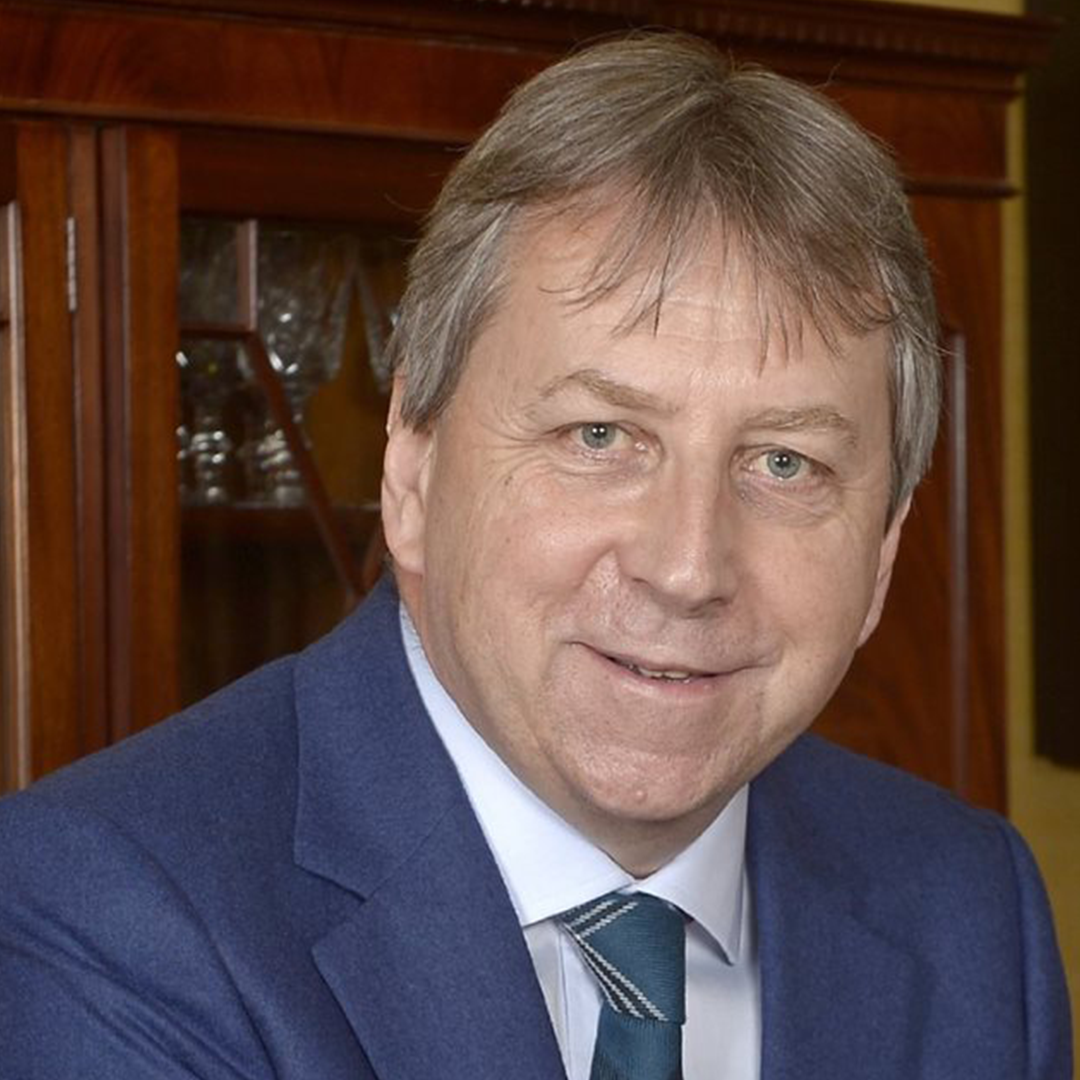
Peter Mathieson MBBS(Hons)(London), PhD(Cambridge), FRCP(London), FMedSci assumed the office of principal and vice-chancellor of the University of Edinburgh in Scotland in February 2018. He was formerly the 15th president and vice-chancellor of the University of Hong Kong. Previous posts include: foundation professor of Renal Medicine at the University of Bristol, honorary consultant nephrologist, North Bristol NHS Trust, head of the University Department of Clinical Science at North Bristol, director of research & development for the North Bristol NHS Trust, dean of the Faculty of Medicine and Dentistry at the University of Bristol.
He read Medicine at the London Hospital Medical College and qualified with First Class Honours from the University of London in 1983. After junior medical posts in London, he obtained a research training fellowship from the Medical Research Council (MRC) to study at the University of Cambridge. He was awarded a PhD by the University of Cambridge in 1992.
The Future of International Education: Leadership Perspectives from Latin America: July 16
Panel Recording
Panel Moderator

Gary S. May became UC Davis’ seventh chancellor on Aug. 1, 2017. He leads the most comprehensive campus in the University of California system, with four colleges and six professional schools. UC Davis enrolls more than 39,000 students, brings in nearly $850 million annually in sponsored research and contributes at least $8 billion annually to California’s economy. In 2019, UC Davis reached the Top 10 in four national rankings of universities, including fifth among public universities in the Wall Street Journal/Times Higher Education College Rankings.
May is known as a dynamic leader with a passion for helping others succeed. He believes success is best judged by how we enhance the lives of others. Throughout his career, May has championed diversity and mentorship in both higher education and the workplace. He developed nationally recognized programs to attract, mentor and retain underrepresented groups in the STEM fields of science, technology, engineering and math. In 2015, President Barack Obama honored May with the Presidential Award for Excellence in STEM Mentoring. May has won numerous honors for his research in computer-aided manufacturing of integrated circuits. He authored more than 200 technical publications, contributed to 15 books and holds a patent related to this work. In 2010, May was named “outstanding engineering alumnus” of UC Berkeley, where he earned his master’s and Ph.D. degrees in electrical engineering and computer science.
Panelists
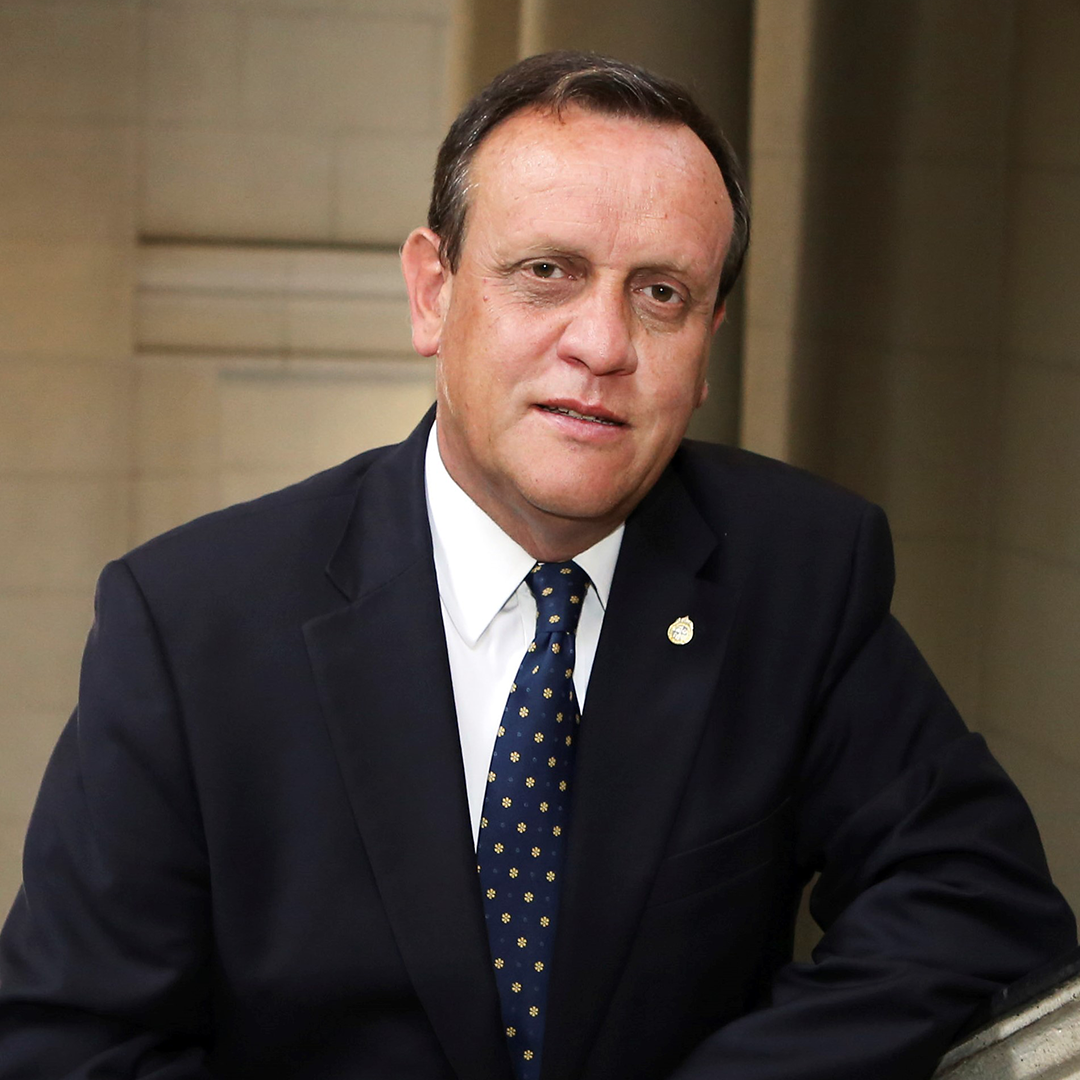
Ignacio Sánchez Díaz is the rector of Pontificia Universidad de Católica de Chile and is a full professor at the School of Medicine. He is part of the Council of Rectors of Chilean Universities (CRUCH) and of the Coalition of Traditional Non State Chilean Universities -G9. He is chair of the Chilean Chapter of Catholic Universities of the International Federation of Catholic Universities (IFCU), and vice-president for the South Region of the Organization of Catholic Universities of Latin America and the Caribbean - ODUCAL.
He received his MD degree from PUC in 1986 and specialized in pediatrics and later subspecialized in pediatric respirology at the University of Manitoba, Winnipeg, Canada. His academic work has been in the areas of respiratory sounds, cystic fibrosis and pulmonary function in infants. In the last years, he has written a number of articles on higher education that have been published in national and international specialized journals. Being elected president of the Pontificia Universidad Católica de Chile in 2010, he was later confirmed for a second period in 2015, and he recently was named to head the university for a third period.
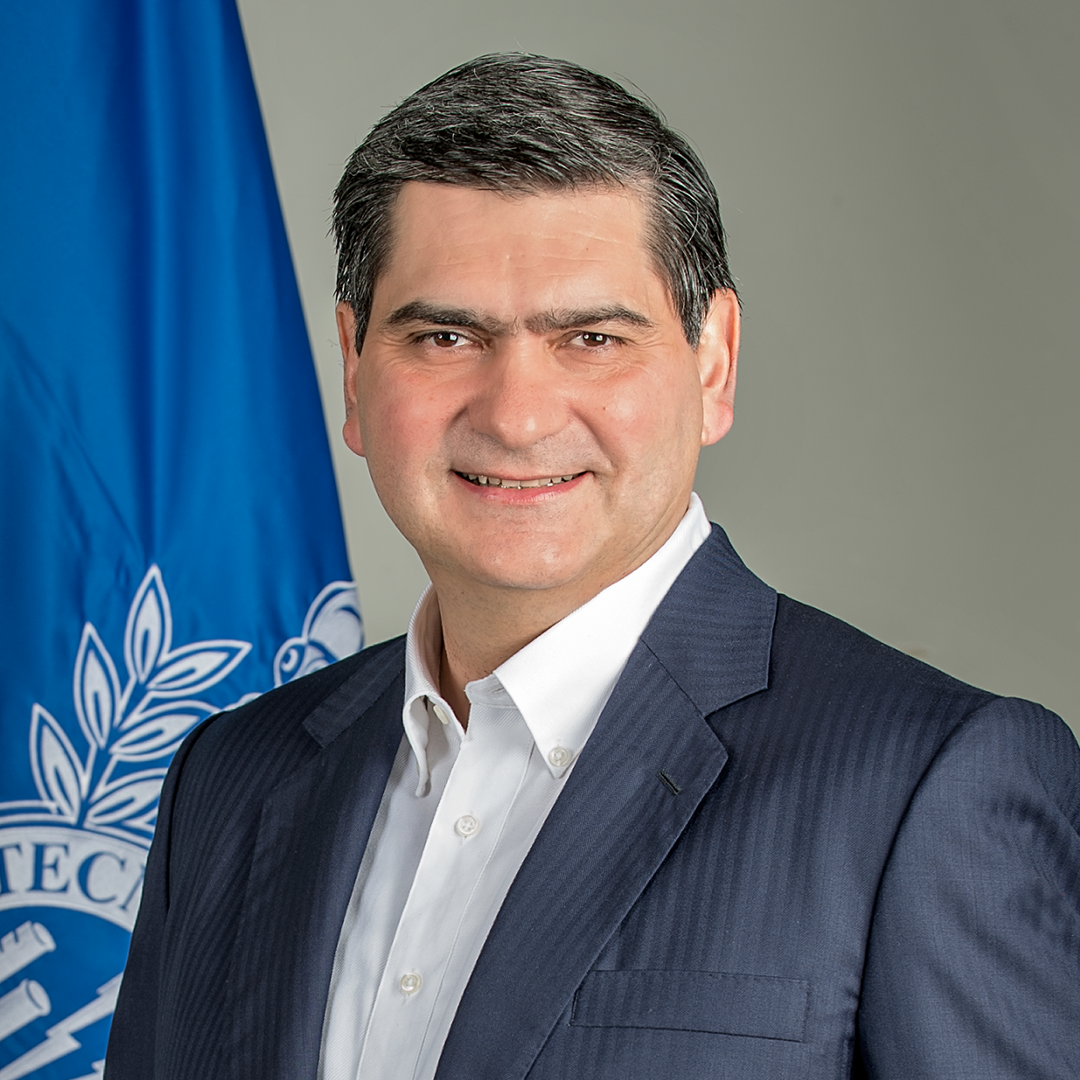
David Garza has served as the president of Tecnológico de Monterrey in Mexico since 2017. He has been a professor and researcher in computer science and information technology, and has held leadership positions at Tec for more than 30 years. Dr. Garza has played an outstanding role heading innovation initiatives at the university, such as the implementation of a world-class educational model in Tec´s 26 campuses.
He is the author of multiple articles and has worked as a consultant on a variety of business projects. He is a past chair of the Global Engineering Deans Council and is a member of professional societies and organizations such as: ASEE, IEEE, ACM, Sigma Xi, and Phi Kappa Phi. Garza has served in conference committees and national and international councils in industry and academic organizations. He has been a speaker at international events in over 15 countries. A graduate of Tec, he holds a Ph.D. in computer science from Colorado State University.
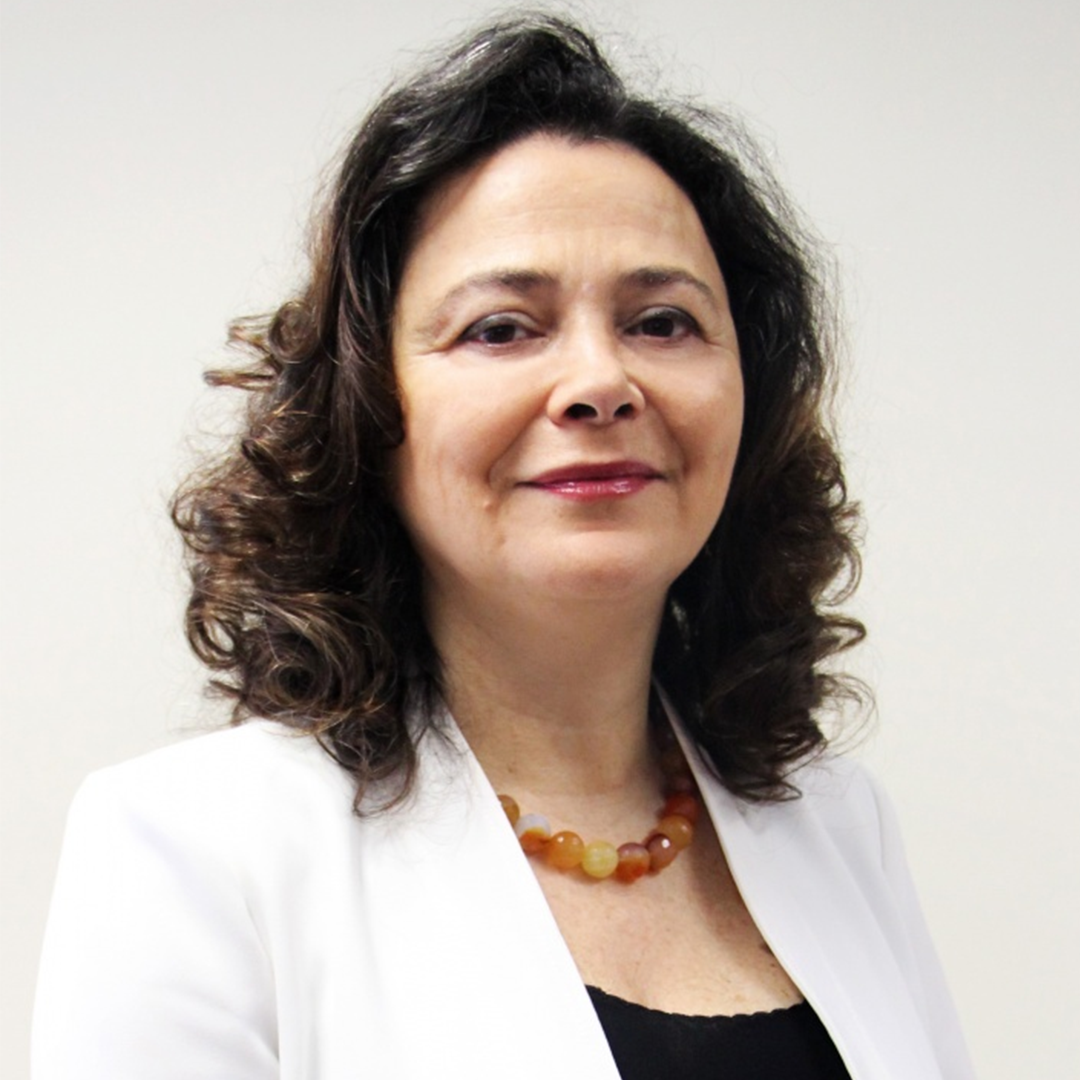
Soraya Soubhi Smaili serves as the rector of Universidade Federal de São Paulo (Unifesp) in Brazil. Smaili graduated in pharmaceutical sciences from the University of São Paulo (1985) and in pharmacy and biochemistry from the University of São Paulo (1985). She holds a master's degree in pharmacology from the Escola Paulista de Medicina (1989) and PhD in pharmacology from the Federal University of São Paulo (1995).
She completed postdoctoral studies in cellular biology and neuroscience at Thomas Jefferson University, Philadelphia USA (1997) and at the National Institutes of Health, Bethesda, USA (1997-1999). She represented the professors for 6 terms together with the University Council (2000-2012), acted as Regional Secretary of the Brazilian Society for the Progress of Science (2004-2008), and was president of the Professors Association Unifesp (2001-2003). She was President of the Institute of Arab Culture (2004-2008). She coordinated the Unifesp Confocal Microscopy Laboratories of Unifesp (2000-2012) and is a member of the board and scientific committee of the International Cell Death Society (ICDS) as well as researcher 1C of CNPq.
More Information
Please email globalaffairs@ucdavis.edu with any questions.
About UC Davis
UC Davis is one of the top-ranked universities in the world, and its experts are helping address the pandemic and other global challenges. Through Global Education for All, the campus is implementing an ambitious plan to provide all students with international or intercultural experiences — whether on campus or one of the seven continents. Recently, UC Davis shared the top ranking among U.S. universities for diversity and internationalization, and the university was named a recipient of the 2020 Simon Award for Comprehensive Internationalization.
About the IIE
The Institute of International Education administers the world’s most prestigious and innovative programs in international education and exchange, including the Fulbright Programs of the U.S. Department of State, The Language Flagship of the U.S. Department of Defense, and the Ford International Fellowships Program. Founded in 1919, IIE promotes the exchange of scholars and students; rescues scholars, students, and artists from persecution, displacement, and crises; conducts research on international academic mobility; and administers more than 200 corporate, government and privately-sponsored programs.
